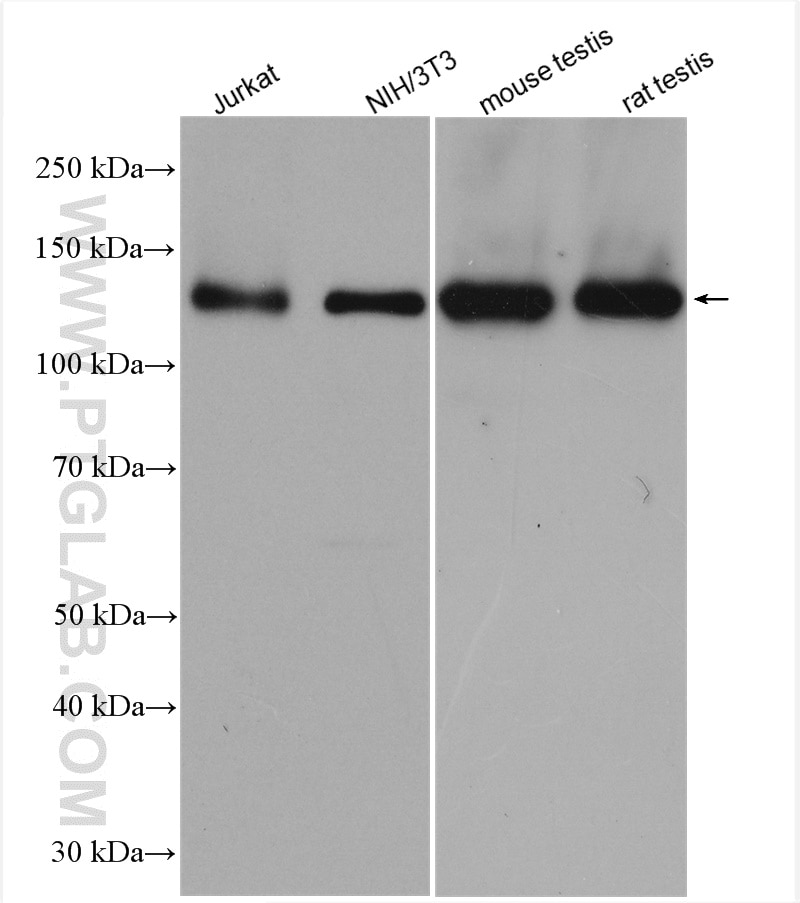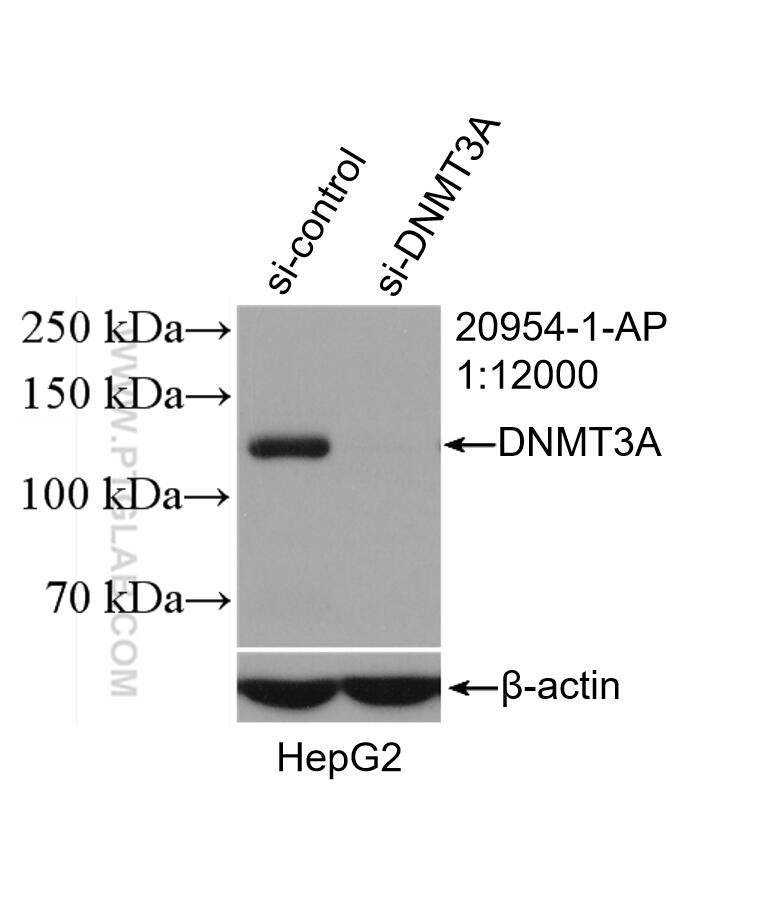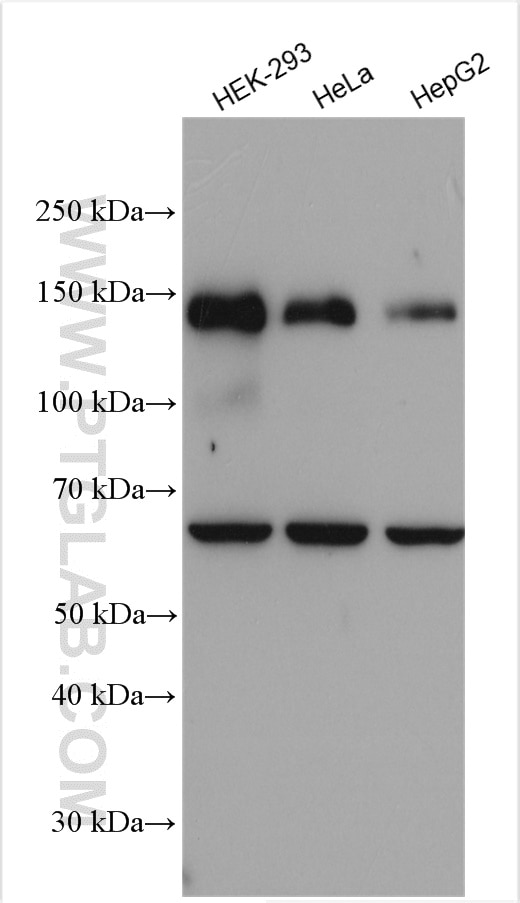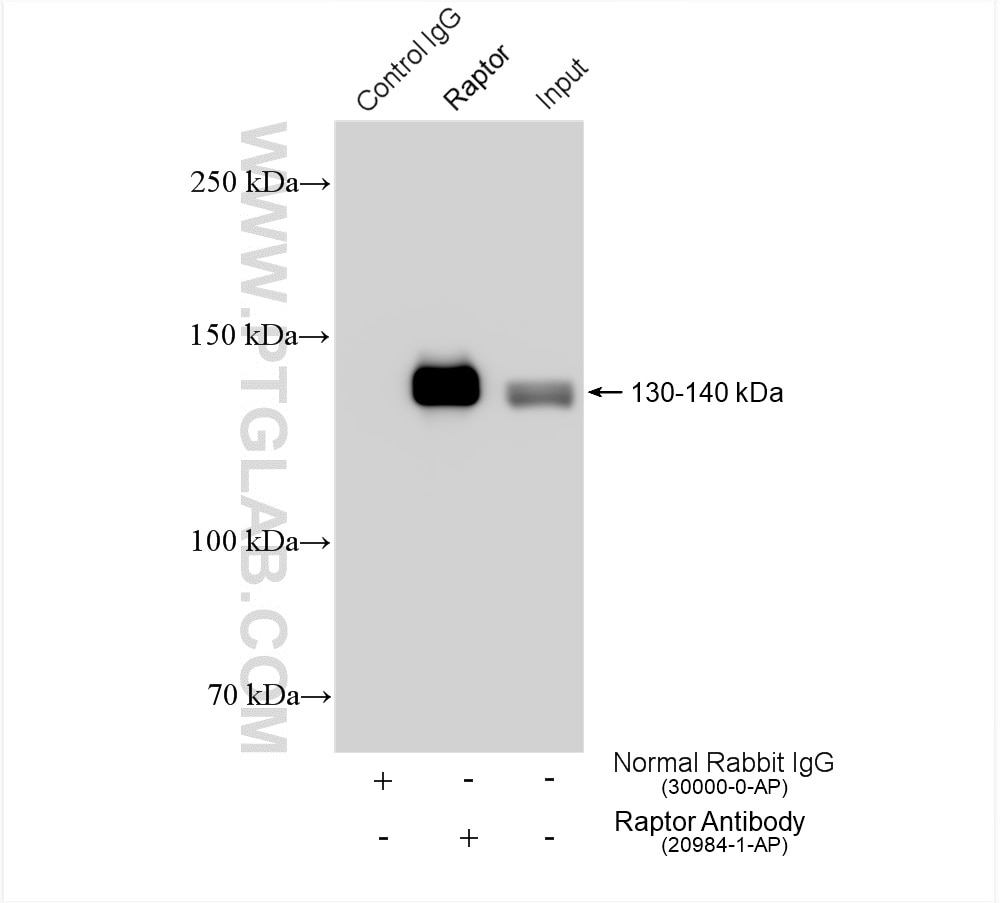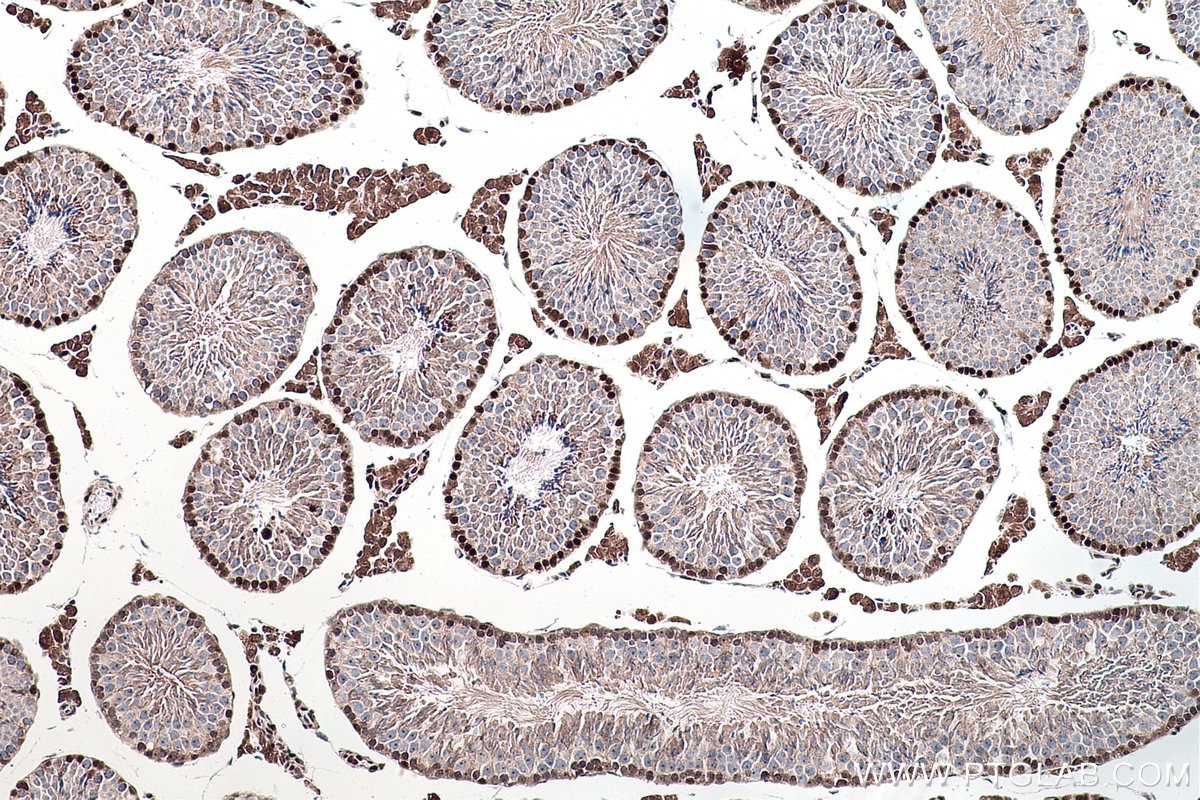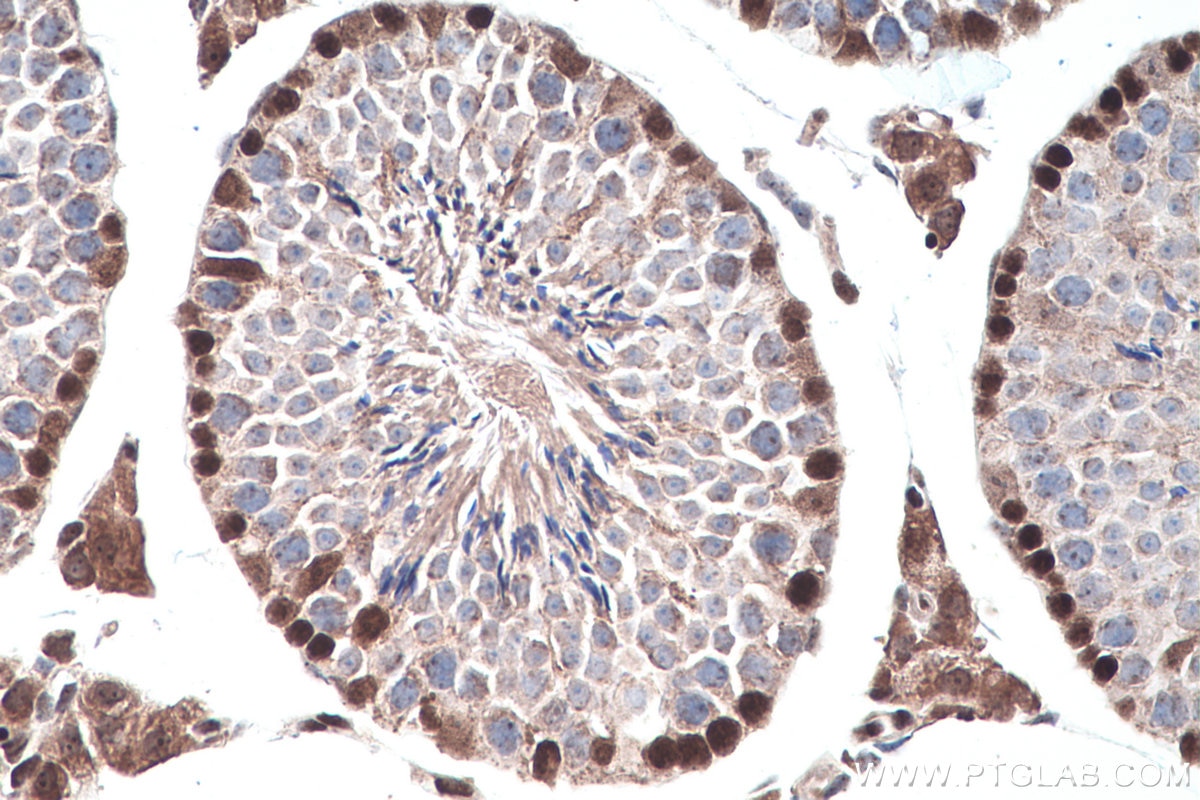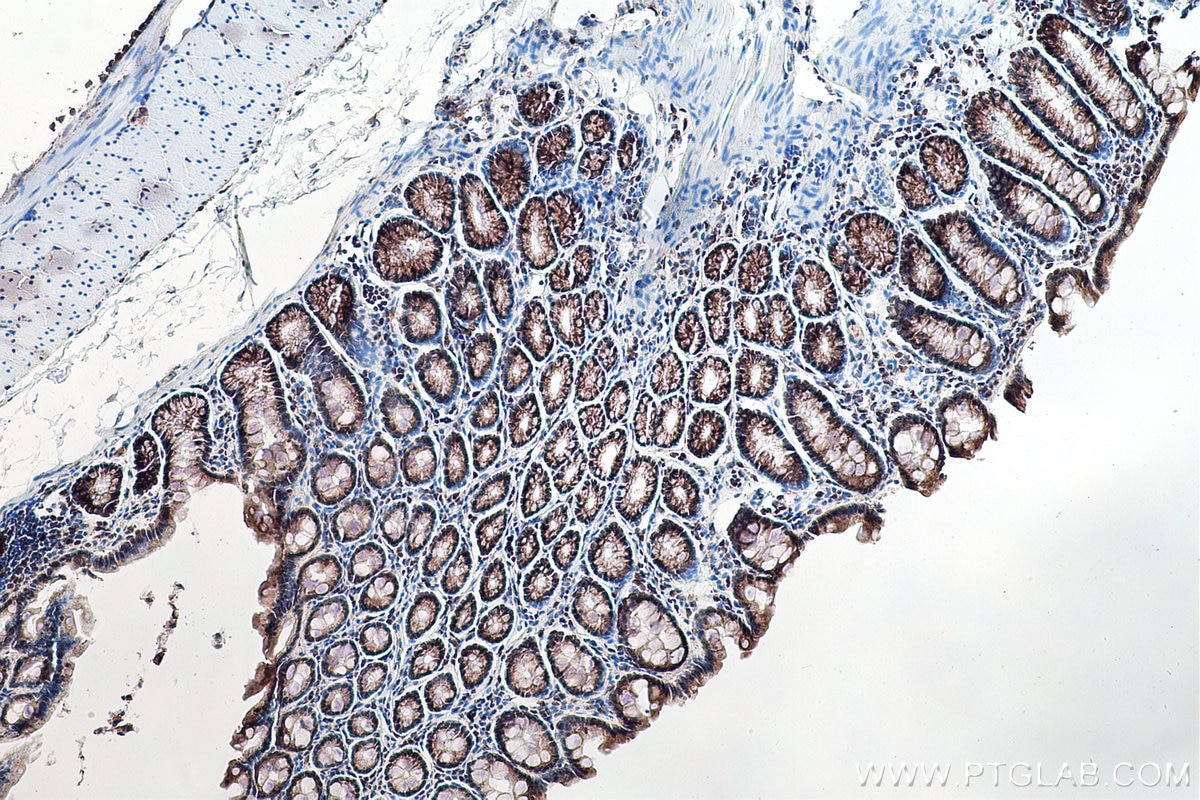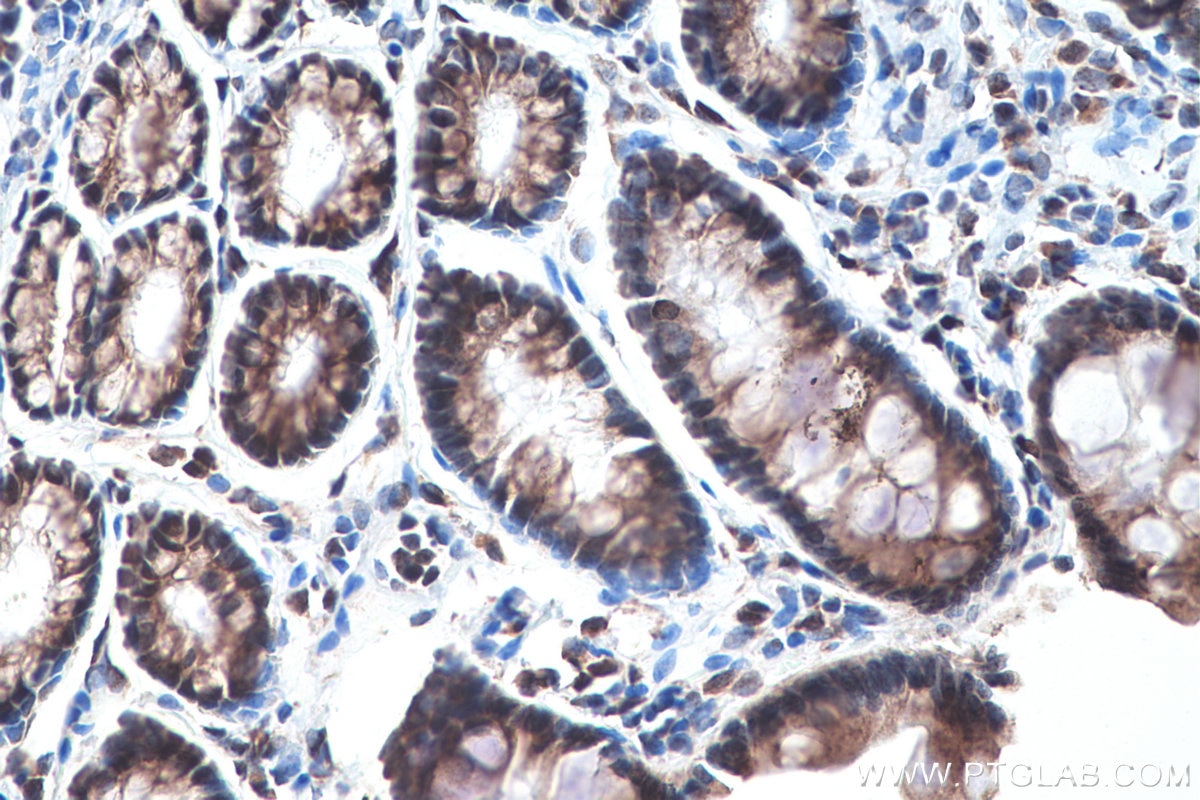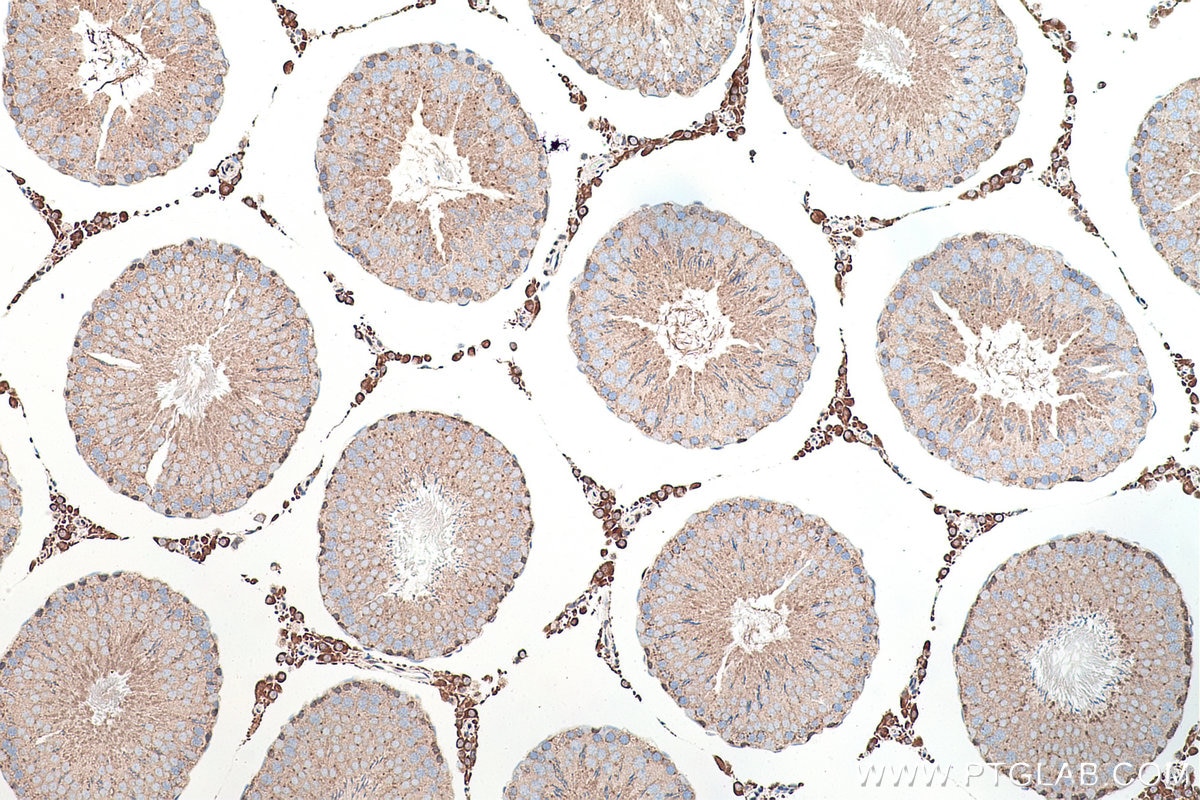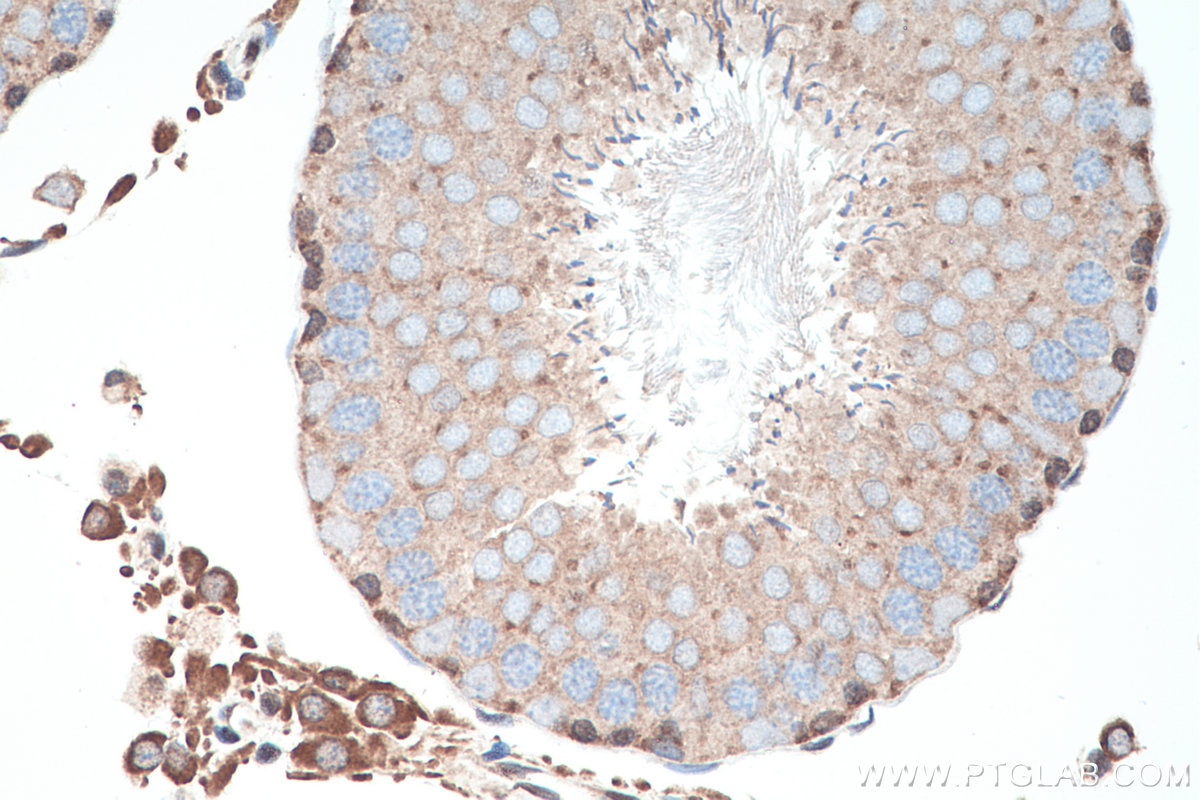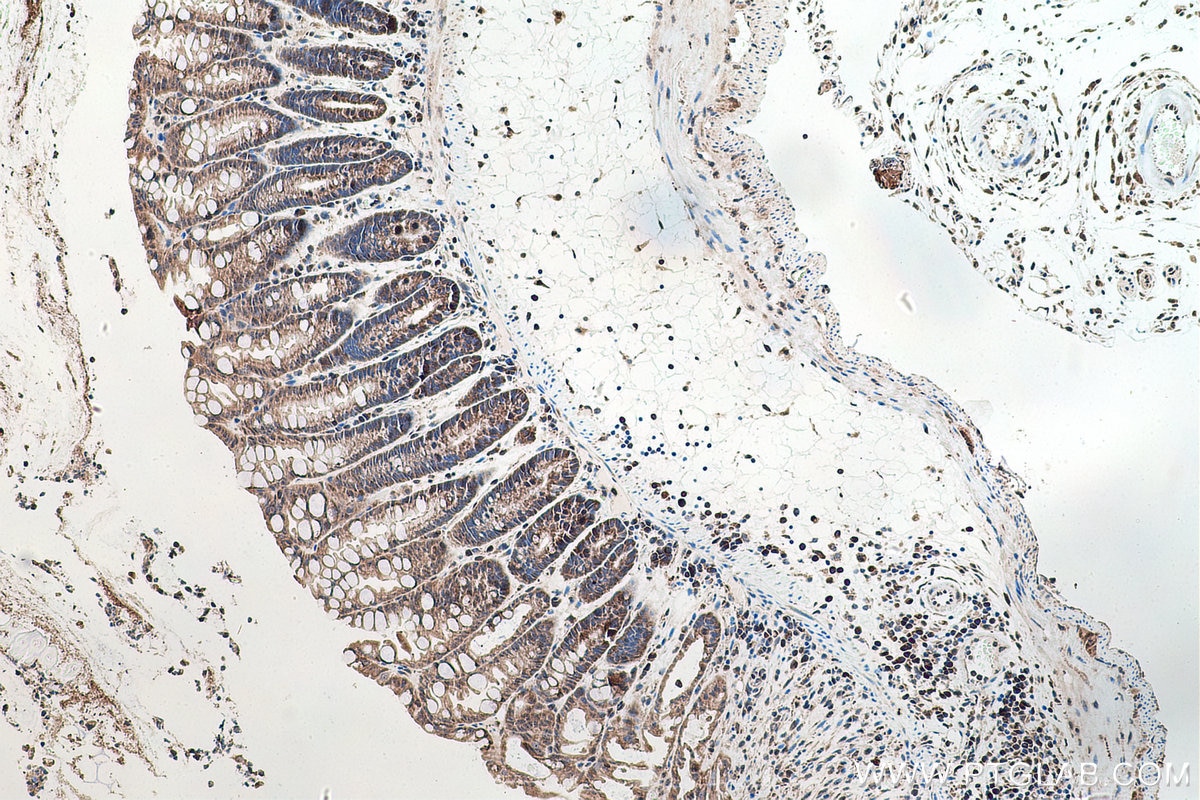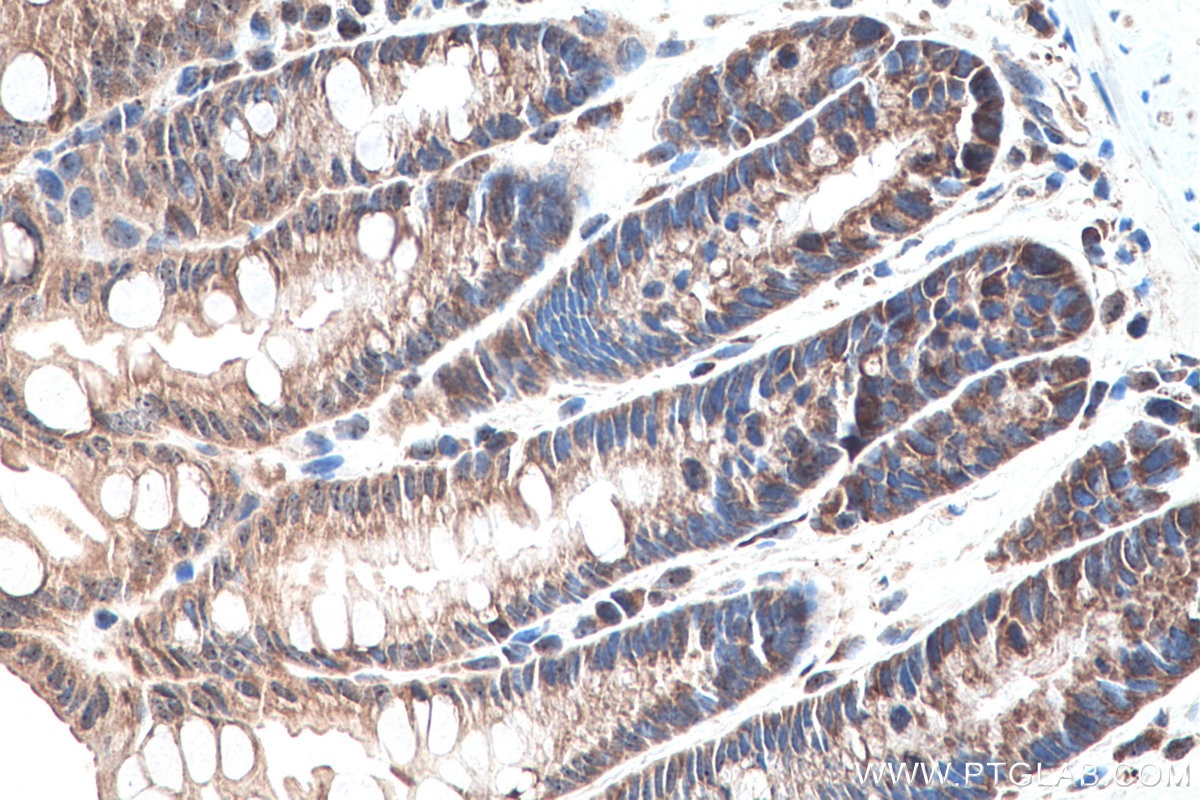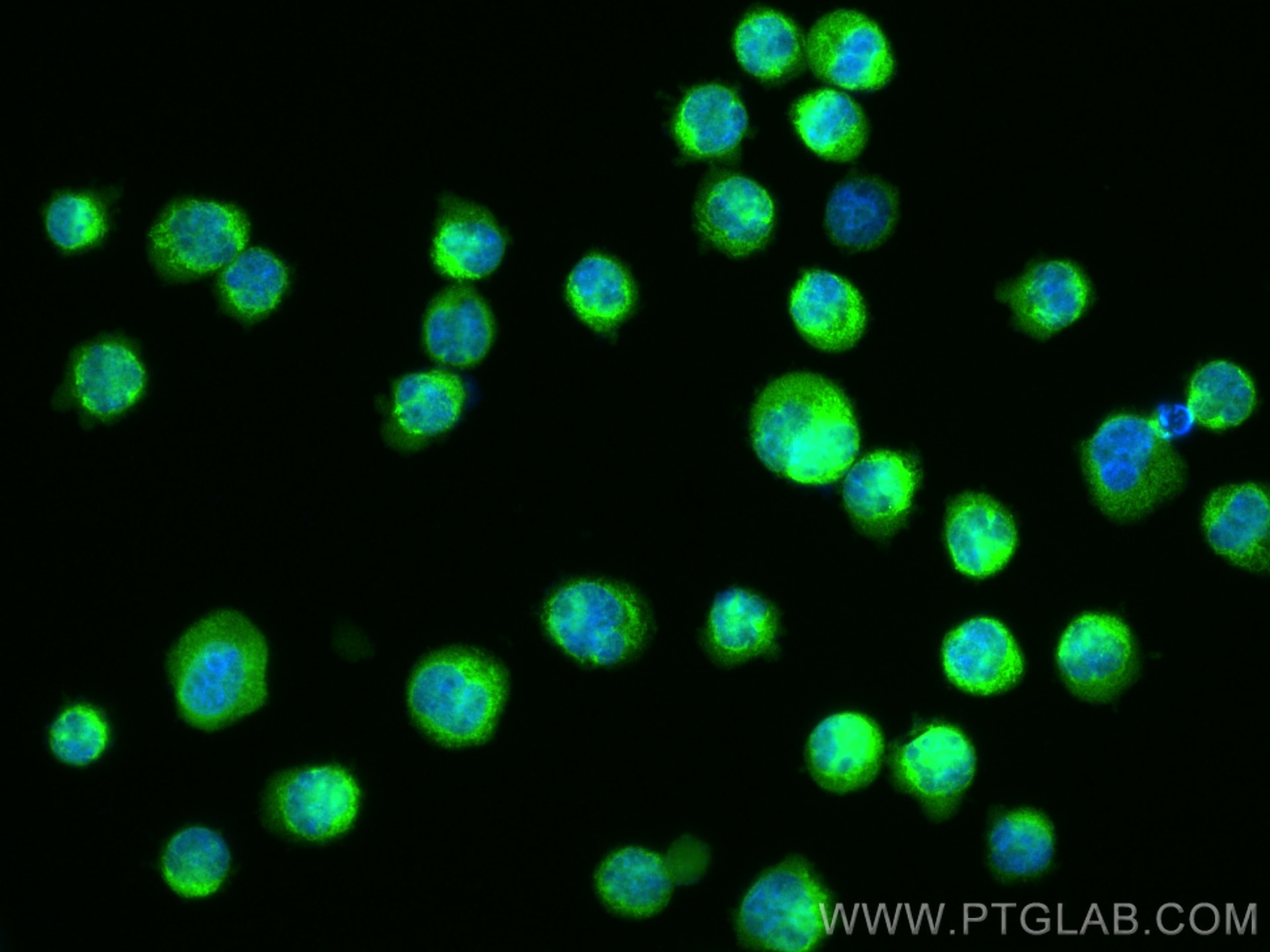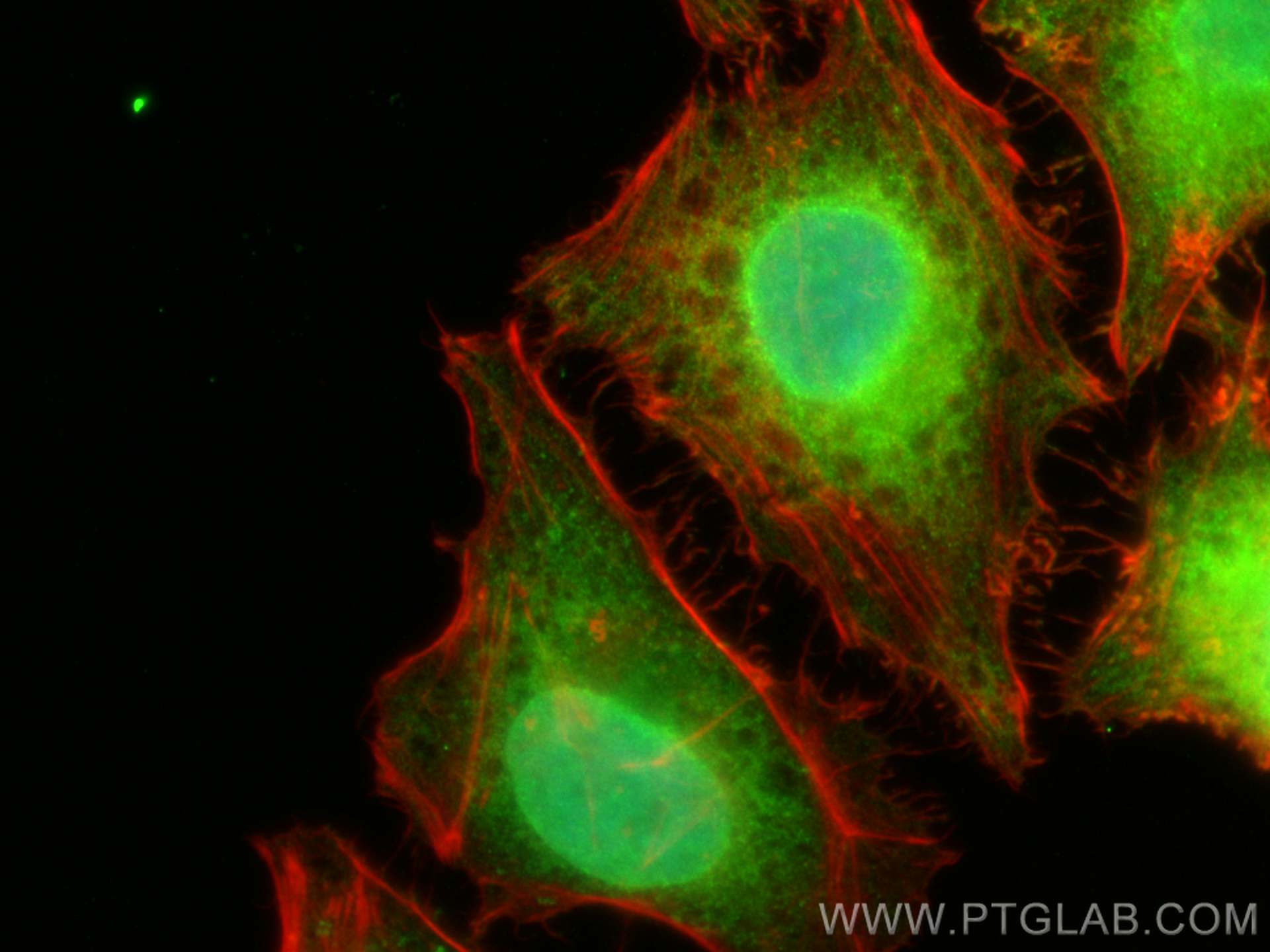- Featured Product
- KD/KO Validated
DNMT3A Polyklonaler Antikörper
DNMT3A Polyklonal Antikörper für WB, IHC, IF/ICC, IP, ELISA
Wirt / Isotyp
Kaninchen / IgG
Getestete Reaktivität
human, Maus, Ratte und mehr (1)
Anwendung
WB, IHC, IF/ICC, IP, ChIP, RIP, ELISA
Konjugation
Unkonjugiert
Kat-Nr. : 20954-1-AP
Synonyme
Geprüfte Anwendungen
| Erfolgreiche Detektion in WB | Jurkat-Zellen, HEK-293-Zellen, HeLa-Zellen, HepG2-Zellen, Maushodengewebe, Rattenhodengewebe |
| Erfolgreiche IP | HeLa-Zellen |
| Erfolgreiche Detektion in IHC | Maushodengewebe, Maus-Kolongewebe, Ratten-Kolongewebe, Rattenhodengewebe Hinweis: Antigendemaskierung mit TE-Puffer pH 9,0 empfohlen. (*) Wahlweise kann die Antigendemaskierung auch mit Citratpuffer pH 6,0 erfolgen. |
| Erfolgreiche Detektion in IF/ICC | K-562-Zellen, HeLa-Zellen |
Empfohlene Verdünnung
| Anwendung | Verdünnung |
|---|---|
| Western Blot (WB) | WB : 1:5000-1:50000 |
| Immunpräzipitation (IP) | IP : 0.5-4.0 ug for 1.0-3.0 mg of total protein lysate |
| Immunhistochemie (IHC) | IHC : 1:500-1:2000 |
| Immunfluoreszenz (IF)/ICC | IF/ICC : 1:200-1:800 |
| It is recommended that this reagent should be titrated in each testing system to obtain optimal results. | |
| Sample-dependent, check data in validation data gallery | |
Veröffentlichte Anwendungen
| KD/KO | See 5 publications below |
| WB | See 46 publications below |
| IHC | See 6 publications below |
| IF | See 4 publications below |
| ChIP | See 6 publications below |
| RIP | See 1 publications below |
Produktinformation
20954-1-AP bindet in WB, IHC, IF/ICC, IP, ChIP, RIP, ELISA DNMT3A und zeigt Reaktivität mit human, Maus, Ratten
| Getestete Reaktivität | human, Maus, Ratte |
| In Publikationen genannte Reaktivität | human, Maus, Ratte, Ziege |
| Wirt / Isotyp | Kaninchen / IgG |
| Klonalität | Polyklonal |
| Typ | Antikörper |
| Immunogen | DNMT3A fusion protein Ag15111 |
| Vollständiger Name | DNA (cytosine-5-)-methyltransferase 3 alpha |
| Berechnetes Molekulargewicht | 912 aa, 102 kDa |
| Beobachtetes Molekulargewicht | 120-130 kDa |
| GenBank-Zugangsnummer | BC043617 |
| Gene symbol | DNMT3A |
| Gene ID (NCBI) | 1788 |
| Konjugation | Unkonjugiert |
| Form | Liquid |
| Reinigungsmethode | Antigen-Affinitätsreinigung |
| Lagerungspuffer | PBS with 0.02% sodium azide and 50% glycerol |
| Lagerungsbedingungen | Bei -20°C lagern. Nach dem Versand ein Jahr lang stabil Aliquotieren ist bei -20oC Lagerung nicht notwendig. 20ul Größen enthalten 0,1% BSA. |
Hintergrundinformationen
DNA methylation in vertebrate animals is an epigenetic modification that is important for embryonic development, imprinting, and the inactivation of X chromosomes. DNA methylation is catalyzed by a family of DNA methyltransferases (DNMTs) that include the maintenance enzyme DNMT1 and de novo methyltransferases DNMT3a and DNMT3b. The overexpression of DNMT1, DNMT3a, and DNMT3b has been reported in various malignancies, including gastric, urothelial, and lung cancers, and may be related to tumorigenesis, tumor progression, and poor survival. Two isoforms of DNMT3a exist: the full-length DNMT3a, and the shorter form DNMT3a2 which lacks the N-terminal fragment. DNMT3a is expressed ubiquitously at low levels, while DNMT3a2 is specially expressed at high levels in embryonic stem cells and shows restricted expression in tissues known to undergo de novo methylation including testis and ovary. This antibody was raised against the N-terminal region of human DNMT3a. It is expected to detect the 120-130 kDa DNMT3a but not 72-100 kDa DNMT3a2.
Protokolle
| PRODUKTSPEZIFISCHE PROTOKOLLE | |
|---|---|
| WB protocol for DNMT3A antibody 20954-1-AP | Protokoll herunterladen |
| IHC protocol for DNMT3A antibody 20954-1-AP | Protokoll herunterladenl |
| IF protocol for DNMT3A antibody 20954-1-AP | Protokoll herunterladen |
| IP protocol for DNMT3A antibody 20954-1-AP | Protokoll herunterladen |
| STANDARD-PROTOKOLLE | |
|---|---|
| Klicken Sie hier, um unsere Standardprotokolle anzuzeigen |
Publikationen
| Species | Application | Title |
|---|---|---|
Mol Cancer CircNTNG1 inhibits renal cell carcinoma progression via HOXA5-mediated epigenetic silencing of Slug
| ||
J Hazard Mater GRP78/IRE1 and cGAS/STING pathway crosstalk through CHOP facilitates iodoacetic acid-mediated testosterone decline | ||
Protein Cell Epigenetic integrity of paternal imprints enhances the developmental potential of androgenetic haploid embryonic stem cells. | ||
Cell Mol Biol Lett miR-29b-3p regulates cardiomyocytes pyroptosis in CVB3-induced myocarditis through targeting DNMT3A | ||
Cell Biol Toxicol Hypermethylation of microRNA-497-3p contributes to progression of thyroid cancer through activation of PAK1/β-catenin. |
